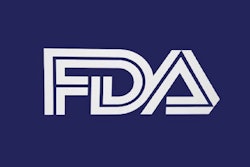Telix Pharmaceuticals and the Brussels-based Oncidium foundation are highlighting results from the NOBLE Registry of TLX599-CDx (technetium-99m [Tc-99m] inhibitor of prostate-specific membrane antigen [iPSMA]), published in the European Journal of Nuclear Medicine and Molecular Imaging Reports.
The NOBLE (Nobody Left Behind) registry is a global real-world evidence study that aims to improve equity of access to prostate cancer imaging. It combines the oncology and prostate cancer expertise of the Oncidium Foundation as registry sponsor, Telix’s intellectual property, and partnered clinical and operational support. Investigators collected patient data that will inform the development of TLX599-CDx, an investigational prostate cancer imaging agent that targets the prostate-specific membrane antigen (PSMA) using technetium-99m (Tc-99m)-based SPECT imaging.
The companies said that SPECT cameras are more widely available than PET/CT scanners or gallium- or fluorine-based PSMA imaging, which could help improve patient access to care.
Initial results included data from 40 patients in six countries who received TLX599-CDx followed by planar and SPECT imaging. The study reported a change in management for 17 patients due to the use of SPECT-based PSMA imaging. No adverse events were reported. The study authors wrote that technetium-based imaging is a promising option to identify PSMA-positive prostate cancer on SPECT imaging.
Telix and the Oncidium Foundation are planning follow-up clinical activity for NOBLE, which may include collaboration with Rhine Pharma on expanded access or compassionate use programs.




















